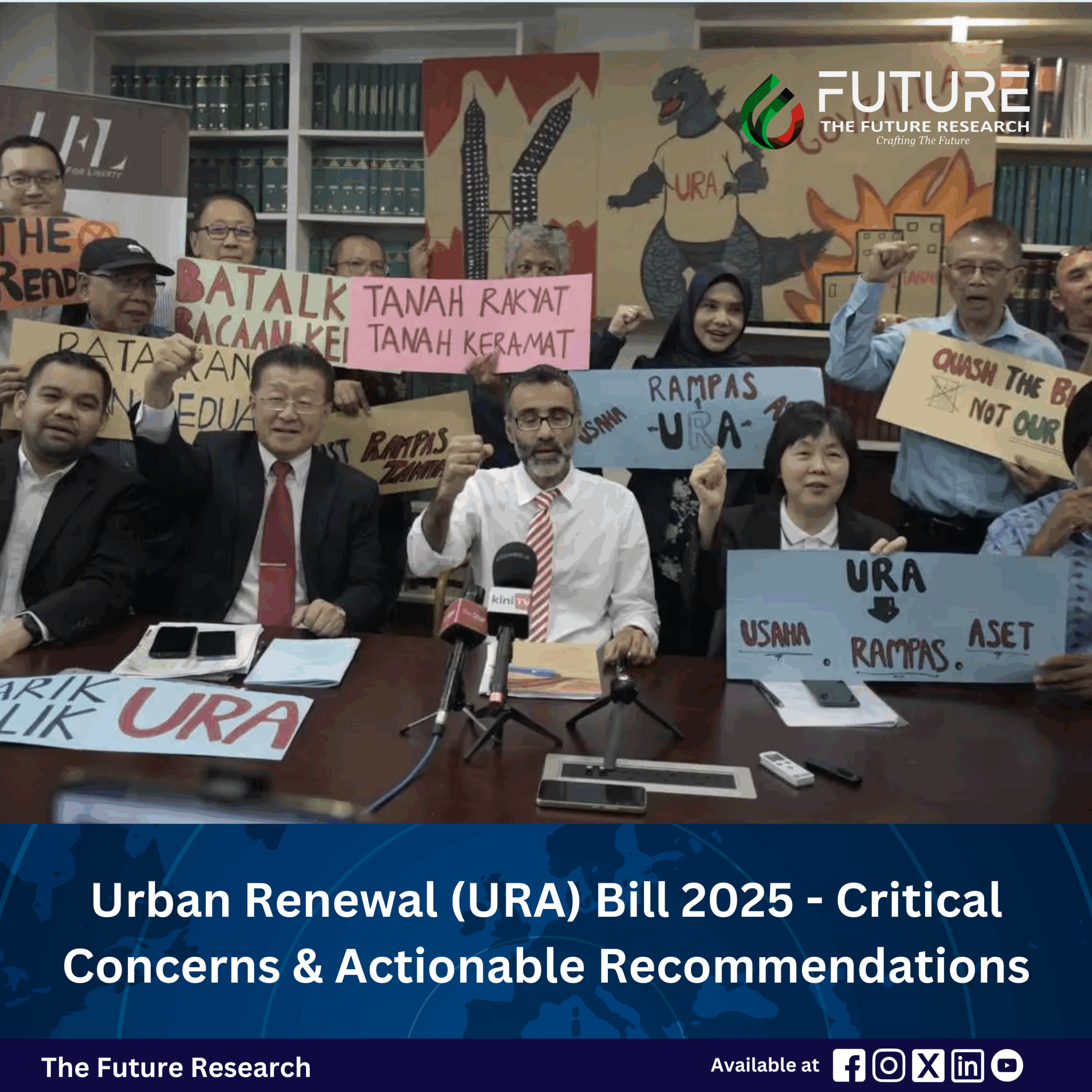The proposed Urban Renewal (URA) Bill has been introduced to address ageing buildings and urban redevelopment. While the objectives appear to align with the need for modernization and safety in Malaysian cities, a closer examination reveals significant gaps that may lead to unintended consequences. This article outlines several key issues that merit deeper consideration before the Bill is tabled in the Parliament.
1. Absence of Clear Clauses on Compensation
The Minister of Housing and Local Government has stated that compensation for affected property owners will exceed market value. However, the Urban Renewal Bill as presently drafted does not explicitly guarantee compensation tied to market rates, nor does it define a transparent valuation mechanism. This omission raises concerns about legal certainty. Without codified assurances, property owners risk receiving compensation below market expectations, with no enforceable provision to challenge or verify the adequacy of payment in the court. This raise concerns over the clear mechanism of justice to protect the rights of property owners.
2. Majority Rule and Minority Rights
The Bill proposes that redevelopment of an old or abandoned building may proceed if 51% of owners consent. While majority agreement is a common decision making principle, in this context, it effectively allows the rights of the remaining half of the community of 49% to be overridden. This raises fundamental questions about property rights where should nearly half of homeowners be compelled to surrender their properties against their will? In democracies, the balance between collective decision making and individual rights is delicate, and the Bill currently tips the scale too heavily towards majoritarianism.
3. Lack of Legal Safeguards Through the Courts
Under the Land Acquisition Act 1960 (Act 486), property owners dissatisfied with compensation may appeal to the High Court. This mechanism provides a vital legal safeguard to ensure fairness. The URA Bill, however, does not provide any avenue for judicial review. Owners who feel aggrieved by the compensation process are left without legal recourse. This is a significant departure from existing land law practice and may be viewed as a denial of a fundamental right to justice.
4. Socioeconomic Impact on Lower Income Groups
Another gap in the Bill is the absence of provisions addressing maintenance charges in redeveloped properties. For example, if a low cost flat is redeveloped into a high rise condominium, residents may face new financial burdens in the form of higher service charges for shared facilities such as gyms or swimming pools. For B40 households, these costs could be unsustainable. Without guarantees that developers or local authorities will subsidise or absorb such costs, the risk of economic displacement becomes very real.
5. Transparency and Accountability Issues
Transparency is another area of concern. During parliamentary debates, requests were made by Kuala Terengganu MP, YB Datuk Amzad Hashim for data on ownership patterns before and after redevelopment in past projects which are Razak Mansion and Residensi Kerinchi. Despite repeated questions, this information was not provided by the minister. Without access to such data, it is difficult to objectively assess whether promises of equitable redevelopment have been fulfilled in the past, or whether similar assurances under the URA Bill can be trusted going forward.
Conclusion and Recommendations
Urban renewal is a necessary policy direction, but legislation must balance economic efficiency with legal safeguards and social justice. Based on the issues identified, we recommend:
- Codify compensation guarantees tied explicitly to market value, with transparent valuation mechanisms.
- Revisit the 51% threshold towards 100% consent levels and clear protections for owners.
- Introduce an appeal mechanism allowing disputes over compensation to be referred to the courts.
- Provide socioeconomic safeguards for lower income groups, ensuring redevelopment does not translate into long term financial hardship or a legalised displacement in the name of redevelopment.
- Improve transparency, with mandatory public disclosure of ownership, compensation, and resettlement data for all redevelopment projects.
- Ensure constitutional and legal alignment by harmonising the URA Bill with the Federal Constitution, the authority of the Rulers, the National Land Code, the Strata Titles Act 1985, and other related legislation, to avoid conflicts and safeguard the integrity of Malaysia’s legal and justice system.
Until these issues are resolved, the URA Bill, in its current form, risks undermining property rights, social equity, and public trust. Urban renewal should not come at the cost of fairness and justice.
Cyberjaya,
August 2025.


Leave a Reply